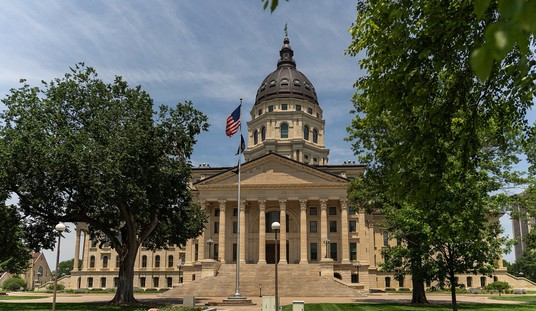Putin’s meddling in an American election happened a lot sooner than thought, at least when it came to Twitter trolls.
In the three months after Mr. Trump announced his presidential candidacy on June 16, 2015, tweets from Russian accounts reviewed by the Journal offered far more praise for the real-estate businessman than criticism—by nearly a 10-to-1 margin. At the same time, the accounts generally were hostile to Mrs. Clinton and the early GOP front-runner, Jeb Bush, by equal or greater margins.
[…]
The numerous Russian Twitter attacks on Mrs. Clinton during this three-month period included a tweet comparing her treatment of the press to Adolf Hitler’s, adding: “Heil Hillary.” Another account tweeted links to an editorial—published months earlier—criticizing Mrs. Clinton’s “Culture of Corruption.”
Many political messages were sent out word-for word by multiple Russian-backed accounts, often within minutes of each other, suggesting a coordinated campaign.
Of the Russian-backed accounts that tweeted about Mr. Trump in the summer of 2015, at least 40 served up positive sentiment; just one account captured by the Journal data expressed strong negative opinions.
The exception was @Jenn_Abrams, an account that pretended to be run by an opinionated American blogger that eventually attracted 71,000 followers and many media mentions. “I’d rather join #ISIS than have Donald Trump as my president,” that account tweeted on the day Mr. Trump announced his candidacy.
It isn’t clear whether the Russian accounts truly backed Mr. Trump from the start, or viewed support for the upstart candidate as an opportunity to disrupt U.S. politics.
As the November 2016 election approached, the Kremlin preference for Mr. Trump became even more pronounced. Pro-Trump tweets—either favoring him or attacking his opponent—outnumbered those for Mrs. Clinton by a 30-to-1 ratio in the two weeks before the election, the Journal analysis found. There were about 236 pro-Trump or anti-Clinton tweets captured in the Journal data during those two weeks compared with seven that were pro-Clinton or anti-Trump.
Much of the Russian social-media disinformation campaign has been linked to the St. Petersburg-based Internet Research Agency, a shadowy, so-called troll farm that spread Russian propaganda across the Internet.
The findings from the WSJ are consistent with the January 2017 Intelligence Community Assessment.
While we’re on the subject of Twitter, Russian billionaire investor Yuri Milner owned 5% of Twitter at one time. Thanks to the Paradise Papers, we’ve learned that the invested monies came from the Putin Kremlin.
Now, leaked documents examined by The New York Times offer a partial answer: Behind Mr. Milner’s investments in Facebook and Twitter were hundreds of millions of dollars from the Kremlin.
Obscured by a maze of offshore shell companies, the Twitter investment was backed by VTB, a Russian state-controlled bank often used for politically strategic deals.
And a big investor in Mr. Milner’s Facebook deal received financing from Gazprom Investholding, another government-controlled financial institution, according to the documents.
Milner sold the interest “several years ago”, but he still has a deal with Kushner.
Among Mr. Milner’s current investments is a real estate venture founded and partly owned by Jared Kushner, President Trump’s son-in-law and White House adviser.
Since Milner is playing with Kremlin-supported money, these investments are weighed both economically and strategically.
“Kremlin-connected institutions make investments with strategic interests in mind — not just commercial interests but state interests as well,” said Michael Carpenter, the Russia director at the National Security Council during the Obama administration, who is now senior director of the Penn Biden Center for Diplomacy and Global Engagement. “They go hand in hand.”
Mr. Carpenter added, “Oligarchs who receive significant amounts of financial support from Russian banks like VTB or Sberbank or Gazprombank have to pass above a political threshold, meaning such support requires the explicit or tacit approval of those at the top of Russia’s crony capitalist system.”
There is nothing illegal here (that we know of), but it still smells because a head of state is surreptitiously involved in the backing of American companies. The Guardian has an interesting graphic.












Join the conversation as a VIP Member